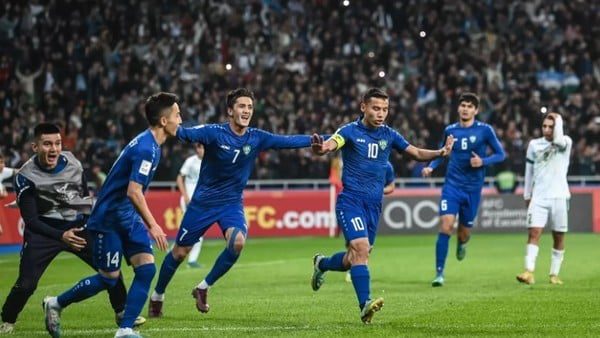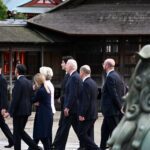Global Courant 2023-05-20 15:01:17
Uzbekistan will be Argentina’s first rival in the Under 20 World Cup, this Saturday at 4:00 p.m. at the Madre de Ciudades stadium in Santiago del Estero. The selected one is the Asian champion and its main figure is Umarali Rakhmonaliev, the only player who plays outside the country and plays for Rubin Kazan, in Russia. But what about the small nation that used to be part of the Union of Soviet Socialist Republics (USSR)?
With just 447,400 km², its area is less than those of the provinces of Buenos Aires and La Pampa combined (451,011 km²) and its capital, Tashkent, is 15,423 kilometers from the City.
To get there, it is necessary to fly almost 24 hours and make two stopovers -one in Brazil and another in Istanbul or Dubai, depending on whether you choose Turkish Airlines or Emirates- at a cost that far exceeds one million pesos.
Along with Liechtenstein, it is one of only two countries doubly isolated from the sea. In its case, it limits to the northwest and north with Kazakhstan, to the south with Afghanistan, to the northeast with Kyrgyzstan, to the southeast with Tajikistan and to the southwest with Turkmenistan.
Perhaps due to this geographical condition, it is not surprising that for a time Uzbekistan was a hermetic nation. Until their leaders realized that tourism could leave them a lot of money. And then they made everything flexible. In fact, Argentine men and women do not need a visa to enter.
Incorporated into the Russian Empire in the 19th century and since 1924 established as the Uzbek Soviet Socialist Republic within the former USSR, it was one of the five Central Asian Soviet republics to become independent. It happened in 1991, two years after the fall of the Berlin Wall, and currently 80% of its 29 million inhabitants -with an ethnic group that mixes Mongols and Russians- profess a moderate Islam, after decades of secularism.
Its president is Shavkat Mirziyoyev, although his great political reference is Islam Karimov, who took office in 1990 and held office until his death 26 years later. The currency is the Uzbek som, which trades at US$0.000087. With an economy rich in cotton, gold, uranium and natural gas, Uzbekistan used to be the center of world trade due to its importance on the Silk Road with the cities of Khiva -full of imposing mosques-, Bukhara and Samarkand.
In addition to being a key tourist spot on the thousand-year-old Silk Road, the objective is to start a new era of development through sport and place the country on the world stage so that in the near future it will host an international tournament, such as the Games of Asia, which in 2030 will be held in Doha.
For this reason, there is a strong investment and in 2019, for example, the Humo Arena was inaugurated, a complex located in Tashkent that was announced as the largest ice rink in Central Asia, with a capacity for 12,500 people. The venue is also adaptable to sports such as basketball, volleyball, futsal, boxing, fencing and taekwondo.
You don’t have to be a genius to remember what the Soviet school has given to the history of chess. And Uzbekistan, one of the former socialist republics, did not escape this tradition and continued to be independent since September 1991.
Uzbekistan, the king of Asia
The Under 20 World Cup in Argentina will mark the fifth appearance for Uzbekistan, which has just been crowned Asian champion for the first time in its history after beating Iraq in the final. Led by Ravshan Khaydarov, they will seek to surpass their best performance, which is having reached the quarterfinals in the 2013 and 2015 editions. They have a precedent with Argentina in the United Arab Emirates 2003 edition, whose result was 2-1 for the “Albiceleste” with Mascherano, Carlos Tevez and Fernando Cavenaghi on the pitch.
Khaydarov, 61, is a sort of José Pekerman of Uzbek soccer. It is that since he took the reins of the youth teams of Asian football, he achieved the continental title among the Sub 23 in 2018 and now he repeated with the Sub 20.
With a past as a former defender in his days as a modest footballer, Khaydarov has important scrolls as a coach. He was the selector of the senior team between 2002 and 2005 and then, after working in various clubs, he established himself as coach of the youth teams.
In his hands he has two rough diamonds. They are defender Abdukodir Khusanov, who plays for Energetik Minsk, in the Belarusian first division, and attacking midfielder Abbosbek Fayzullaev, who has already won two Uzbek first division titles and a local Super Cup with Pakhtakor, the former club. from your coach.








